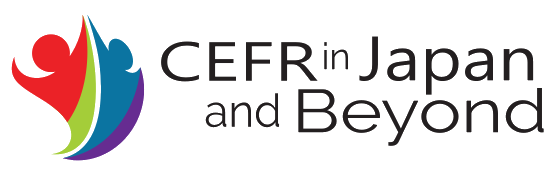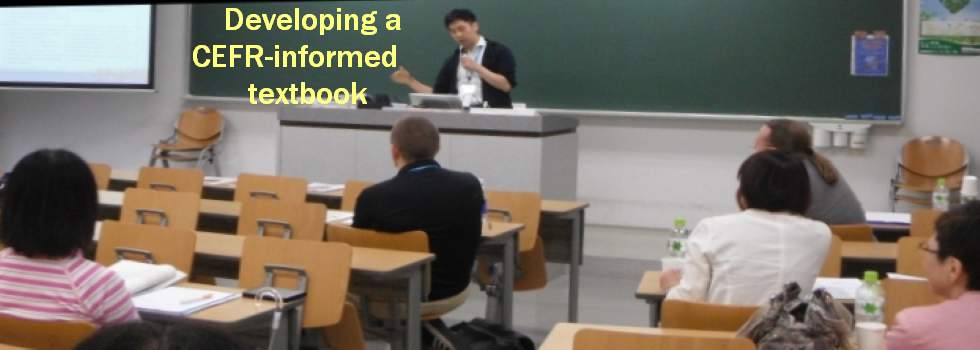Critical, constructive assessment of CEFR-based language teaching in Japan and beyond
In areas such as curricula and teaching practices, this project is centred on some key questions.
In regard to Curricula, some key questions include:
What type of implementation has been adopted? What specific practices have been implemented? What practices have been seen to be effective? How are all stakeholders involved? Has the CEFR promoted a system for in-house evaluation of curricula and learning targets? Do curricula and courses include transparent and concrete learning objectives, with accepted can do statements at the centre?
Is it possible to compare the results of instruction in different classes? Can the people engaging in CEFR-based teaching and learning develop a sense of ownership?
These two latter points connect to Classroom instruction. Key questions specific to this area include: Do can do checklists serve as the key reference point for processes of reflective teaching/learning in which self-assessment plays a central role? How?
What are the interpretations, of teachers, students and other stakeholders, of the philosophy and ideas of the CEFR? Are the CEFR-based materials (textbooks, teaching content etc.) action-oriented, and easily applicable by both teachers and students? Can all readily see the benefits of the CEFR-based approach for their own teaching/learning? Is autonomous learning beyond the specified materials (e.g. textbooks) supported and encouraged? If so, how?
科学研究費助成事業 基盤研究(C) (研究課題番号:26370624)
This work is supported by a kakenhi Grant-in-Aid for Scientific Research (26370624) from the Japan Society for the Promotion of Science
Details: In recent years there has been a vivid discussion in Japan and elsewhere about language learning curriculums and frameworks, especially the Council of Europe’s Common European Framework of Reference for Languages (CEFR). It is important to be aware that the CEFR and its can do statements must be adapted and changed to suit the specific context they serve. The basic theme of this project focuses on the implementation of the CEFR in language education institutions, with a focus on generating ideas of current practice that can be adapted and implemented by others. It is possible for the focus to be pluricentric, but currently it is proposed the project will be centred around Japan. We are also interested in representing developments in other geographically close regions of Asia (e.g. China, Korea, Taiwan, Vietnam etc.). The focus will be on principles and practices that effectively disseminate transparent and suitably scaffolded learning objectives, while focusing on an action-oriented approach that also promotes life-long, autonomous learning. The focus of the project is action-research based, following an action-reflection cycle (McNiff & Whitehead, 2009): observe what is going on- think about how they can improve it- act- gather data- show transformational nature of the actions- test and modify existing thinking and practices- communicate the significance, in order to encourage new ways of acting. We hope the results of the enterprise can encourage others to enact action-reflection cycles on local levels.
We are seeking proposals for presentations that address general issues such a great dilemma when contextualizing the CEFR: the more it is adapted to a specific context, the greater the possibility that the CEFR will lose its validity and the original language proficiency scales will be altered in an unhelpful way. The localization of the CEFR proficiency levels means a departure from the CEFR global standards and raises issues such as how closely the localized scales are related to the CEFR scales. The localization must be done to fit each language course but should be done in principled ways so that the original scales are kept intact. This project should suggest the ways in which the CEFR should be contextualized.
In general, submissions should address the issue that although the CEFR has been widely applied to curricula and course improvement, resulting in positive effects on language education, implementation is not without difficulty. To adapt the CEFR to the entire language program, teachers and other stakeholders must share its basic philosophy and ideas. The amalgam of top-down and bottom-up implementation with a strong leadership is necessary. How has this leadership, and what specific practices, been implemented?
It is possible that the adverse effects of language testing, and other language education practices, may be reversed should a more learner centred pedagogy to produce more effective and autonomous learners of language. It is difficult to bring about change though, particularly in areas such as curricula, and teaching practices. It is within such areas that important issues should be critically, but constructively assessed and discussed.
Initial project members include: Fergus O'Dwyer, Noriko Nagai, Alexander Imig, Naoyuki Naganuma, Gabriela Schmidt, Morten Hunke
Subpages (5): CriConCef III - March 2016 | June 6 2015 Conference details | May 31 2014 Conference Details | S u r v e y | Workshop Material



